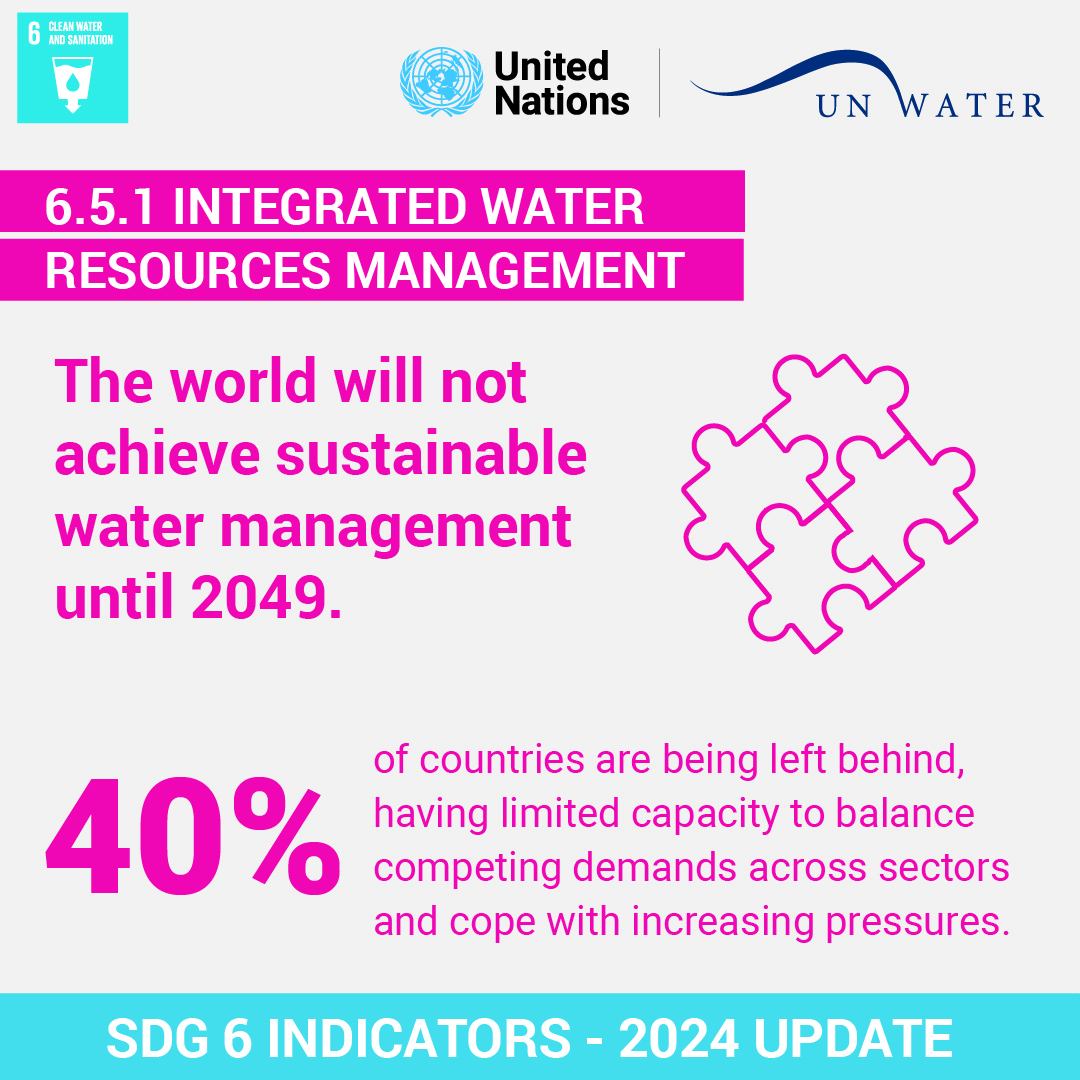Monitoring & reporting | GWP's contributions | What's next
The third global status report on the degree of implementation of Integrated Water Resources Management (IWRM), through SDG indicator 6.5.1, was released during World Water Week 2024 in Stockholm.
Produced by the United Nations Environment Programme in collaboration with UN-Water, the report highlights how global average progress towards IWRM implementation has increased, from 49% in 2017 to 57% in 2023. However, at this rate of progress, the world is not on track to reach the 2030 target (high level implementation – 91%), and, at the current rate, the world will not achieve sustainable water management until at least 2049, some 19 years after the 2030 target.

Monitoring and reporting challenges and opportunities
Every three years, the SDG 6 IWRM Support Programme (Stage 1) is monitoring and reporting on the status of IWRM through SDG indicator 6.5.1 to identify national, regional and global challenges and opportunities. The Programme is led by UNEP, as the custodian agency for SDG 6.5.1, in partnership with UNEP-DHI Centre, UNDP Cap-Net and GWP.
In this monitoring round, GWP contributed to this monumental effort in a number of ways.
“One of our goals was to enhance the SDG 6.5.1 data by incorporating diverse stakeholder perspectives”, said GWP’s Yelysaveta Demydenko. “92% of participants felt their opinions were heard during the consultation process, and 85% were satisfied with how their views were reflected in the final SDG 6.5.1 surveys. This demonstrates the value of stakeholder engagement in improving data quality and ensuring that the water-related challenges and priorities are accurately captured, fostering collaboration and progress towards sustainable water management.”
GWP's contributions
-
Contributing to the review of the SDG 6.5.1 survey itself, including the new climate change free-text questions, which allow respondents to reflect how well their water management is adaptive to the changing climate.
-
Development of a gender mainstreaming checklist, which allowed countries to understand in a more granular way how well gender is mainstreamed in their water management. This checklist has been piloted in six countries, with positive initial results.
-
Developing the methodology for multi-stakeholder consultations on the status of SDG 6.5.1, including both written guidance (the stakeholder consultation manual) and an online course, on the UNDP Cap-Net Virtual Campus.
-
Organising 67 national stakeholder consultations which brought together a total of 2683 stakeholders, at an average of 41 per country. These consultations were organised upon request of the national governments, to bring together different perspectives on the different questions that make up the SDG 6.5.1 survey. A stakeholder consultation report was produced for every country assisted in this way.
-
Developing and offering countries the option of using the online survey on SDG 6.5.1, through the IWRM Action Hub. This survey was officially used by 17 countries in their reporting processes to bring in additional voices, with over 200 respondents making use of it.
-
Yelysaveta Demydenko and Colin Herron from the GWP Global Secretariat were contributing authors to the third global status report on SDG 6.5.1.
What's next?
Like any health check, the results of the SDG 6.5.1 survey will be mainly useful if they lead to positive changes. The SDG 6 IWRM Support Programme will be assisting countries that request its assistanceto turn these results, among other data points, into actionable country priorities to advance towards the water-related goals under the 2030 Agenda, and to access implementation support for those actions. To do so, the Support Programme partners are currently finalising their open-source guidance for countries to employ, which will be placed on the Stage 2 web page soon. Watch this space, or reach out to us if you’d like to find out more.

